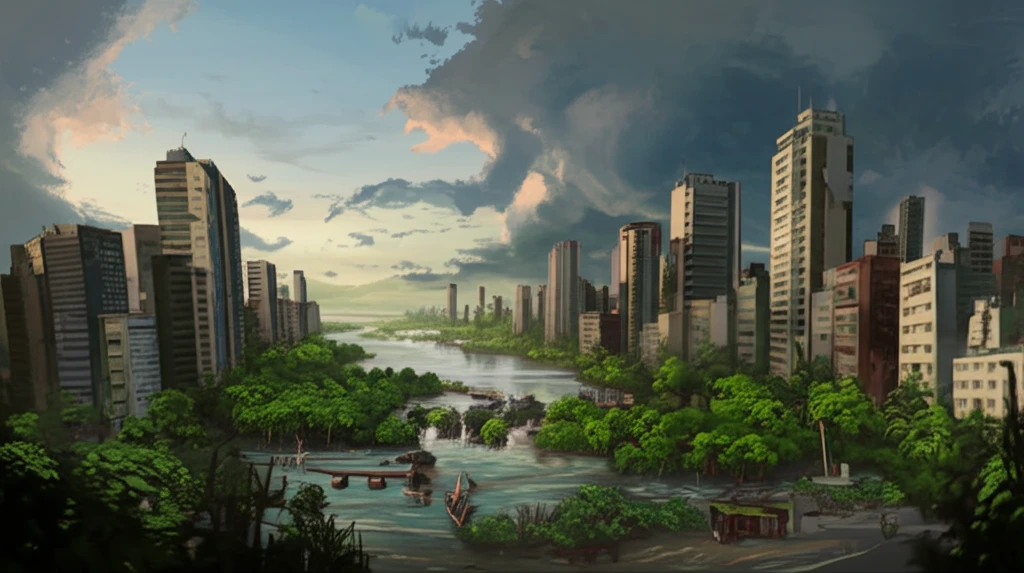
Santos' Silent Struggle: Can This Coastal City Adapt to Climate Change?
"Uncover the untold story of Santos, Brazil, as it confronts rising sea levels and extreme weather. Is its adaptive capacity strong enough to weather the storm?"
The world's coastal cities face a looming threat: climate change. Rising sea levels, extreme weather events, and shifting environmental conditions are no longer distant possibilities but present-day realities. Santos, a bustling port city in Brazil, is on the front lines of this crisis. Understanding its adaptive capacity – its ability to adjust to these changes – is crucial for securing its future.
Adaptive capacity isn't just about physical infrastructure. It encompasses a society's collective ability to act, innovate, and protect itself in the face of adversity. This involves everything from governmental regulations and institutional frameworks to community engagement and individual awareness. For Santos, assessing this capacity requires a deep dive into its unique social, economic, and environmental context.
This article explores the adaptive capacity of Santos, drawing insights from research conducted within the Metropole Project. We will examine the challenges the city faces, the initiatives it has undertaken, and the potential pathways towards building a more resilient and sustainable future for its residents.
Santos: A City Under Pressure

Santos occupies a pivotal position in Brazil's economy, but this prominence comes with vulnerabilities. Like many coastal areas, it has been subjected to intense financial speculation and environmental degradation. Climate change, particularly sea-level rise, threatens to exacerbate these existing pressures, potentially overwhelming the city's infrastructure and increasing the vulnerability of its population.
- Environmental Degradation: Historical industrial activity and urban expansion have significantly impacted the city's ecological balance.
- Social Vulnerability: Unequal distribution of resources leaves poorer neighborhoods disproportionately exposed to climate risks.
- Governance Gaps: Municipal legislation has been slow to incorporate climate change adaptation measures.
- Lack of Integration: Insufficient coordination among various agencies hinders effective risk management.
Building a Resilient Future
The journey towards climate resilience is a continuous process of learning, adapting, and innovating. For Santos, this means fostering greater connectivity between local efforts, promoting transparency in decision-making, improving organizational structures for collaboration, and empowering a broader range of stakeholders to take ownership of the issue. By addressing its vulnerabilities and capitalizing on its strengths, Santos can pave the way towards a more sustainable and resilient future.
